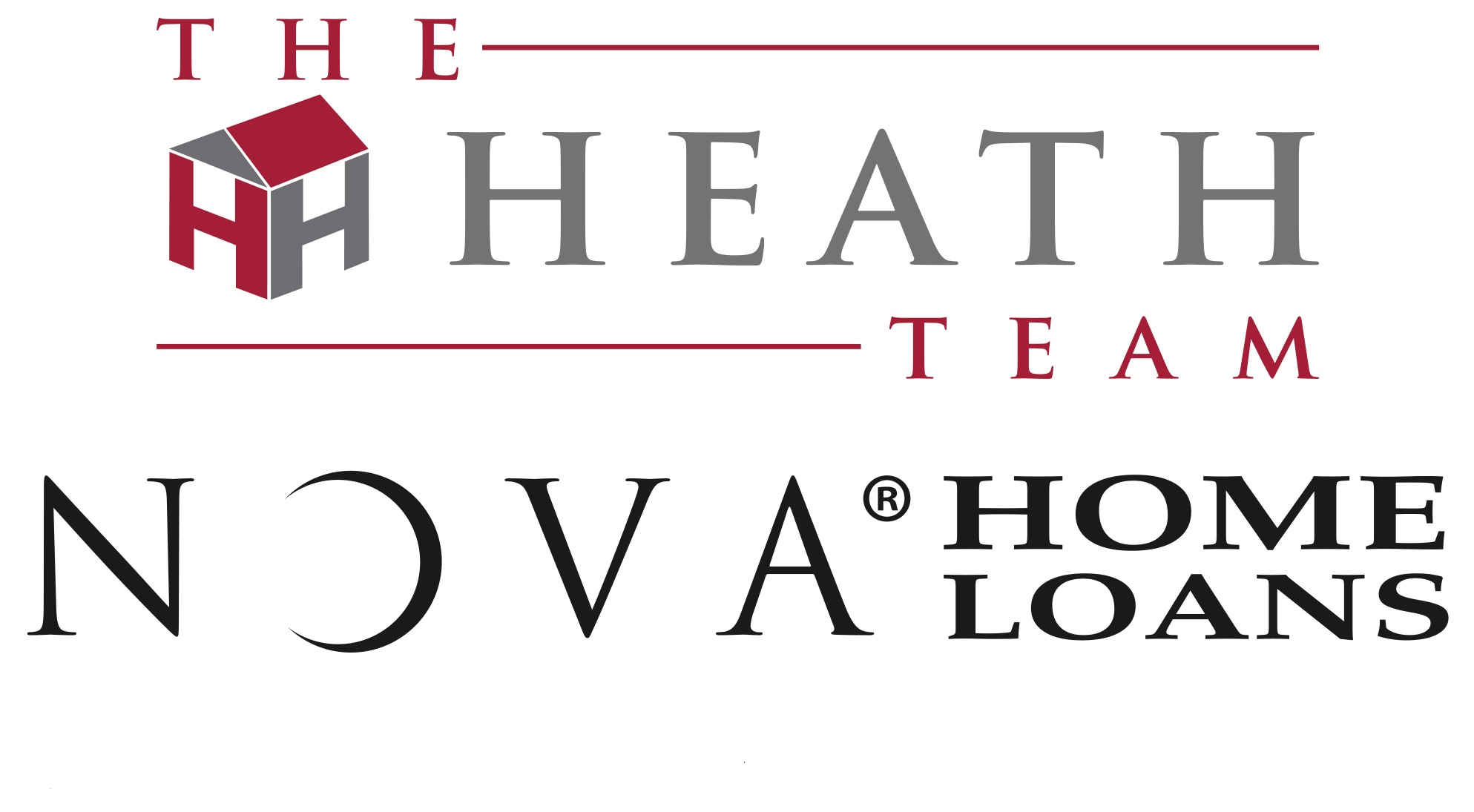Welcome to another insightful episode of Mortgage FAQs. Today, Senior Loan Officer Tom Heath interviews Patty Gonzalez, the Director of Housing at the Community Investment Corporation (CIC). Patty shares her extensive knowledge about the Mortgage Credit Certificate (MCC) program, a valuable yet often overlooked benefit for homebuyers.
Understanding the Mortgage Credit Certificate (MCC)
The Mortgage Credit Certificate (MCC) program provides a significant tax credit to homebuyers, reducing the amount of federal income tax they pay. Homebuyers can receive up to $2,000 annually for the life of their mortgage. This credit is in addition to the standard mortgage interest deduction, providing substantial financial relief.
Key Benefits of the MCC Program
- Substantial Tax Savings: Homebuyers can receive a tax credit of up to $2,000 annually. Over a 30-year mortgage, this can amount to approximately $50,000 in tax savings.
- Enhanced Homeownership Affordability: By reducing tax liability, the MCC helps make homeownership more affordable, allowing buyers to retain more of their income for other expenses.
Program Accessibility and Awareness
Despite its significant benefits, the MCC program is underutilized. Many potential beneficiaries are unaware of its existence, and even tax professionals sometimes overlook it. The Community Investment Corporation (CIC) administers the program in Arizona, making it the sole gateway for eligible homebuyers to access this benefit.
Eligibility Requirements
To qualify for the MCC, applicants must meet specific criteria:
- First-Time Homebuyers: Applicants must be first-time homebuyers or not have owned a home in the last three years. Exceptions are made for veterans and those purchasing homes in designated target areas.
- Income and Purchase Price Limits: There are income and purchase price limits, which are more generous in target areas, making the program accessible to a broader range of buyers.
Application and Renewal Process
Applying for the MCC involves:
- Submitting a Loan Application: Potential beneficiaries must submit their standard loan application.
- Providing Three Years of Tax Returns: Applicants must also provide three years of federal tax returns to verify eligibility.
- One-Time Program Fee: There is a one-time fee of $500, which can be paid at closing or in installments.
The MCC must be renewed annually, with a nominal renewal fee of $100. CIC provides guidance and free tax preparation services to ensure homeowners maximize their benefits.
Financial Impact
The financial impact of the MCC program is significant. For example, on a $125,000 loan with an interest rate of 4%, homeowners can expect to receive the full $2,000 credit annually for many years. This credit can either increase their tax refund or reduce their tax liability, providing immediate financial relief.
Refinancing and Program Continuity
One of the standout features of the MCC program is its flexibility. Homeowners do not lose their MCC benefits when refinancing; the certificate can be easily transferred to the new loan without requalification. This ensures continuous benefit throughout the life of the mortgage, even if interest rates change.
Embrace the Financial Benefits of Homeownership with MCC
The Mortgage Credit Certificate (MCC) program is a powerful tool for first-time homebuyers, veterans, and those purchasing in target areas. Administered by the Community Investment Corporation in Arizona, it provides substantial tax savings, enhancing the affordability and attractiveness of homeownership.
If you’re a first-time homebuyer or a veteran, talk to your lender about the MCC program or reach out directly to Patty Gonzalez and her team at the CIC. For more information and to see if you qualify, visit the Community Investment Corporation’s website. Unlock the financial benefits of homeownership today with the MCC program.
Be sure to watch the full interview with Patty Gonzalez for a deeper understanding of the MCC program and its benefits. You can also find the full transcript of the interview below.
Transcript (Unedited)
Tom Heath
So we’re back for another episode of mortgage terms that sound made up but are probably real and This week’s episode is about something called the mortgage credit certificate So we have Patty Gonzalez from the Community Investment Corporation the director of housing. I understand. Yes, so mortgage credit certificate MCC real
Speaker 3
Real and I know I know it’s gonna sound hard to believe because it’s been around for a very long since 1991 1991.
Tom Heath
1991.
Speaker 3
And I’ve been administering it since 1995. So it’s kind of like my baby.
Tom Heath
Wow. So you’ve got a few years of experience doing this.
Speaker 3
A few.
Tom Heath
So mortgage credit certificate, can you walk us through the basics of that?
Speaker 3
So the MCC, Mortgage Credit Certificate, is a tax credit program. So anyone purchasing a home and are paying interest on their mortgage, they’ll get 40 % of the interest they pay up to $2 ,000. So most people are capped at $2 ,000. So it’s a $2 ,000 tax credit for the life of the mortgage. so once they’re in their home and start making that mortgage payment, they’ll start seeing this
Tom Heath
$2 ,000 tax credit. And the tax credit, that’s something that I think is very confusing, especially for people like me that aren’t always in the tax world. We have all kinds of tax incentives and there’s deductions and credits. This is different than what people refer to as the mortgage deduction that they might take on their taxes. Correct, which gets mistaken quite
Speaker 3
often. Even our tax preparers will let our homeowners, once they have a certificate, say, oh, we’re not putting your house on your taxes because we’re not itemizing the interest you’re paying as a deduction. It’s a different subject. It’s an actual tax credit. So, of course, we all know anyone that purchases a home can write off their interest as a deduction, but most don’t anymore because of the standard deduction IRS gives us. And so, this credit is in addition to that, so.
Tom Heath
So if you’re getting, let’s say if you were getting, without the mortgage credit certificate, if you were getting a refund of $1 ,000, you would just get a refund of $3 ,000. $3 ,000, correct. And if you owe taxes, that liability would be reduced by that, whatever you qualify for.
Speaker 3
That’s exactly right.
Tom Heath
Okay, so I hate to do this on video, but we need to do a little math.
Speaker 3
Okay.
Tom Heath
Because you threw out some numbers and we threw out percentages.
Tom Heath
40 % of the interest paid. Mm -hmm. So right now interest rates are higher than they have been in the past so if we’re talking six to seven percent interest rates on a $100 ,000 loan, I mean, that’s like six thousand seven thousand dollars worth of interest, correct? And then it’s up to forty percent of that. It’s forty percent of that up to two thousand up to two thousand
Speaker 3
Okay. Yeah, so I for my math purposes my other it’s a hundred twenty five thousand dollars at four percent interest they’re going to pay $5 ,000 in just interest of loan.
Tom Heath
OK.
Speaker 3
40 % of that, 40 % of the $5 ,000 is $2 ,000. So as long as their loan amount is over $125 and their interest is over 4%, they’ll be capped at the $2 ,000.
Tom Heath
OK. And then that every year, because you owe a little bit less, so you pay slightly less interest, it’s the same calculation. Because it’s capped at 40%, you’re probably going to get that for 10, 15 years probably.
Speaker 3
On average, we just had our 30 -year anniversary, and for at least the first 20 years, people are getting their cap at the $2 ,000. So over the life of the 30 years, on average, people are seeing $50 ,000 worth of tax credit.
Tom Heath
Oh my gosh. That’s pretty good. So there’s got to be a catch. What’s the catch?
Speaker 3
The catch is that you should apply prior to closing, and people don’t know the program exists.
Tom Heath
Okay.
Speaker 3
So the the big thing is why didn’t I know about it or I want the tax credit because this isn’t done through us
Tom Heath
I’m a mortgage lender. This is not done through us We have to let people know about this so they can come see you because you’re an independent agency that oversees this program, correct?
Speaker 3
so we’re a local nonprofit and we administer the program for the entire state and We are the only we’re the gatekeeper You’re the only way to get into this tax credit program and there’s probably four other states that do it in all the United States So it’s not offered everywhere.
Tom Heath
I thought every state had it.
Speaker 3
No, it’s not offered everywhere and we…
Tom Heath
The things I learned from these cool people. That’s awesome.
Speaker 3
Yeah, we’ve only been doing this since 99.
Tom Heath
And is it available? Because there was a while it was only available like in certain zip codes or certain areas.
Speaker 3
It’s always been available in Pima County. It was statewide in the 90s. And then Maricopa had pulled out. And in the last two years, Maricopa is back in. So now it’s been statewide for the last five years or so. Okay, and I know there’s some qualifications
Tom Heath
So we should probably get that out there too
Speaker 3
the main one is you have to be a first -time homebuyer or not on the home in the last three years or You have to at least have been red team in the last three years So we have a lot of the I’m on my mom’s title, but I never lived there. I never had ownership interest It’s just in case something happens As long as you have not lived there in the last three years, you’re considered a first -time homebuyer.
Tom Heath
Okay.
Speaker 3
Or if you’re a veteran or buying what’s considered a target area, which is certain census tracts, you do not have to be a first -time homebuyer. So that’s kind of the first obstacle. And then there’s income limits based off your family size and purchase price limits.
Tom Heath
And those income limits, are those in place across the board or are there like exceptions for military or census?
Speaker 3
So if the income limit if they’re in a target area that same census track the income limits are higher And so are the purchase price limit, so that’s another benefit of buying in a target area You don’t have to be a first -time buyer and income and price limits are higher for target areas
Tom Heath
And how do they if someone wanted to actively search for homes in a specific area? Did you have that list? We actually have a very
Speaker 3
Friendly map on our website, and it’s the whole state. It’s shaded and it’s green or teal, but it’s green it’s not a target, it’s still, it’s target, so that way people can zoom in. Otherwise, there’s a line there where you just put that address, and then you’ll find out if it’s in a target area or not. But the non -target areas are pretty generous. You know, you’re looking at a $100 ,000 limit, 105 for a family of three or more income limit, and your purchase price limits are closer to $500 ,000 now. So most people don’t have problems.
Tom Heath
That’s changed a lot. It has. When I first started doing MCCs like 15 years ago, and I found out about them, the income was like $30 ,000, dollars, and it was a much more narrow qualifying population.
Speaker 3
Yeah, no, we’re definitely utilizing the program. It’s always been funded. It’s never run out of money. And then we’ve actually, over the life of since 91, we’ve done over 9 ,000, 9 ,000 certificates.
Tom Heath
9 ,000 times 50 ,000, that’s a lot of money.
Speaker 3
It’s a lot of tax credit.
Tom Heath
And from a procedural standpoint, someone, they will come to me, if I see that they qualify I’ll refer them over to CIC, and you have documentation requirements just like we do. What kind of documentation should they be prepared to provide?
Speaker 3
For us, we’ll need from you the loan application, so your standard form. I have to do work? You have to submit a form.
Tom Heath
Nevermind, this interview is over.
Speaker 3
I know.
Tom Heath
I thought you were doing all the work.
Speaker 3
You know, they want their $50 ,000.
Tom Heath
You’re going to have to do a little bit of work. I’ll help out.
Speaker 3
Yeah. And there are three years of tax returns, three years of income tax returns. the federal 1040. That’s the main thing they want to start gathering. I know you guys don’t are required to collect that anymore. They can order them if they don’t have them from IRS, get transcripts. But what we’re looking for on those is that we’re looking at income limits. We also will take the time and show them on their tax return the difference between deductions and credits and where that refunds gonna kick in. And if they’re gonna be getting a big refund, we could also show them where they can adjust their withholding so they take more a money home for a paycheck, which is gonna help make their mortgage payment a little easier.
Tom Heath
And is there, there are people that don’t always have to file taxes or income, do they, would they be considered for this program or does it make sense?
Speaker 3
No, they still can apply, and if for some reason they did not file, it’s not required to turn in because they did not file. But a lot of people either didn’t make enough money to file or right now your younger generation is being claimed by their parents still, or you have someone that may have been on disability, and most people tend to go back to work, have some kind of taxable income, or they get in filing jointly with somebody that has taxable income.
Tom Heath
So you’re looking at it from a qualifying standpoint, but also a benefit standpoint, because if there’s no benefit to them for whatever reason, they don’t need to go through the process.
Speaker 3
Correct. But most people, we have found that, I mean, unless I’m 85 and I’m living out of social security and I’m buying a house, then they’re probably not going to go back to work and start filing taxes. But most people tend to get qualified.
Tom Heath
OK. And then I know there are fees involved.
Speaker 3
There is a one -time program fee to get into the program. So there’s a $500 fee. And that’s something that it can be collected at closing. It’s considered a closing cost. Or the buyer can, once they move in the home, they can start making payments on that. We’ll take payments through the end of every year because we want to make sure they paid it off by January so they can start filing their tax returns.
Tom Heath
Oh, okay. Yeah. So you’re trying to remove a lot of obstacles and hurdles.
Speaker 3
We want to stay out of the closing process as much as possible. So that’s another issue that we find is because this tax credit program doesn’t really have anything to do with the buying process. And so we’re overwhelmed with the buying process, and it’s already a lot of information. And to throw a tax credit at them gets a little confusing. So we try to stay out of the closing process. work with them, show them on their tax returns. And then once they’re in the program, our goal is just to get them in the program. Because then in January, that’s when we start working with them offering free tax preparation and be like, we want to make sure that it’s utilized the program.
Tom Heath
And then they have to renew it every year. It’s not automatic, right? They have to go in and
Speaker 3
physically say, I want to renew this. So we will send them. There’s actually a renewal fee. OK. And every January, we send them, here’s the tax form. This is how you claim it. If you’re doing TurboTax, have your tax preparer call us, come in for free tax preparation, and we do all that in January, and then that renewal fee is usually due in April once tax returns are due, because if they didn’t benefit from the program, they don’t pay that renewal fee. The renewal fee is waived, so it’s a case -by -case.
Tom Heath
And what’s, is it another $500? It’s $100. Okay. Yeah. So you’re only getting a $1 ,900 benefit from this program, see how it is.
Speaker 2
Correct, yes. I see how it is.
Tom Heath
It’s always in the fine print, people.
Speaker 2
It is, but you know what? We filed our income tax return, so there’s there.
Tom Heath
Now it’s back over.
Speaker 2
Yeah.
Tom Heath
And a lot of people that are purchasing homes right now, as we’re sitting here in 2023, their expectation is that rates are gonna drop and they’re gonna refinance. Do they lose their credit when they refinance?
Speaker 3
They do not. They actually will let us know that they refinance. We collect one of their documents from their closing and we transfer it over so they don’t requalify. We don’t have to get anything from the lender.
Tom Heath
It’s just nice. Yeah, this is this is starting to make more sense. Yeah. So yeah, we just start work directly with them and be like
Speaker 3
Okay, we’re gonna transfer this over because the certificate is good for the original 30 years So, you know we they can refinance six times and you know be spreading out the term
Tom Heath
But the certificate will still expire after the 30 if they purchase a new home Then obviously they wouldn’t be first -time homebuyers So if they turn this current home into a rental, would they still be able to use that in some incentive? They cannot it’s supposed to be their primary residence. Okay, so I mean it sounds like you’re hitting a very specific target And you’ve really kind of thought through all of the the different Connections to that. So it’s it’s helping a first -time homebuyer or veteran It’s giving a little bit of a benefit if you’re looking for homes in a certain area that are designated as target areas and and it’s also kind of you avoid manipulation by having someone then turn it into a rental immediately and and and
Speaker 3
And $2 ,000 every year, even if you use it to pay down your principal, you’re still going to see that credit for the first 20 years regardless. So we understand that the credit goes away if you’re buying them, paying down that interest, but you’re still going to utilize a lot of money in those first 15, 20 years.
Tom Heath
So if you’re a first -time homebuyer or a veteran, ask your lender if they’re familiar with the mortgage credit certificate, and they can help you through that process. If not, you can reach out to Patty’s team over at the Community Investment Corporation. And if we do things properly, somewhere here, there’s a website, you can find her. We’ll see how that old technology works out on that. And also, you might want to talk to your lender too, because this is not something we’ll get into in today’s video, but that $2 ,000 can be used towards qualifying income on some programs. Big secret. Yeah, that’s, you can do a lot with
Speaker 3
$2 ,000. Yeah, we’re talking about that another session.
Tom Heath
Well, I think we’ve given them enough for today. But definitely talk to your lender, especially if you’re what they refer to as your debt to income ratio, they say it’s a little too tight. If you qualify for the mortgage credit certificate, we’ve had people that makes the difference between whether they can purchase a home or not.
Speaker 3
Especially with today’s rates, you qualify that six but not at 7 .5. Still make it work.
Tom Heath
Patty Gonzalez, Director of Housing for the Community Ambassador Corporation, a Tucson non -profit serving all of Arizona, and we’re appreciating your time. I know you’re quite busy these days.
Speaker 3
I’m glad you had me here. It’s nice to see you guys again.






